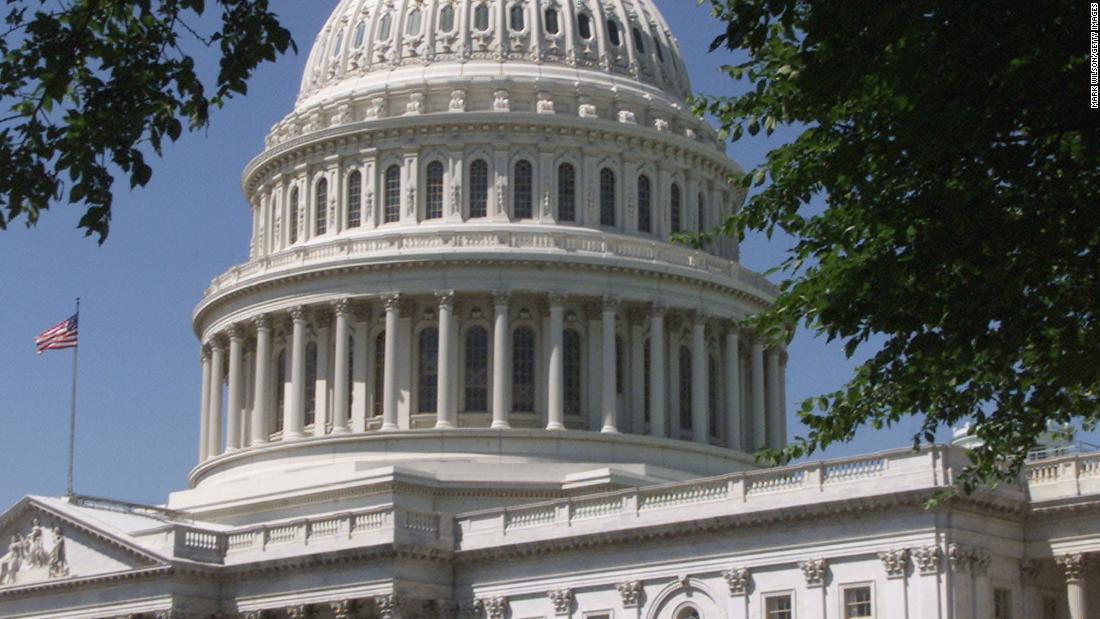Analysis: Congress is about to bring back its secret weapon - 4 minutes read

Or, at least, on their way back.
Over the weekend, Punchbowl News reported that the chairs of the House and Senate Appropriations committees were planning to bring back what is technically known as "member-directed funding."
This is a sneaky big deal. And a massive win for party leaders of both parties.
Following the 2010 midterm elections in which Republicans seized control of the House, incoming Speaker John Boehner moved to ban them. "This earmark ban shows the American people we are listening and we are dead serious about ending business as usual in Washington," Boehner said at the time.
McCain made these so-called "pork barrel" projects famous. Actually, he made them infamous (which, as everyone knows, means more than famous. ) And Boehner -- never a fan of earmarks to begin with -- saw his moment to prohibit any sort of earmarking as a way to show the American public that Republicans were committed to doing things differently.
Again, it all makes sense. Until you realize that in taking away earmarks, Boehner robbed party leaders of their most potent weapon to keep their rank-and-file in line on key votes.
It's no coincidence that the House Freedom Caucus, originally formed in response to the Tea Party movement that drove Republicans into the majority in 2010, became a dominant force within GOP politics over the time Boehner spent as leader -- and eventually drove him for the speakership. Without the ability to dole out (and withhold) projects in members' districts, Boehner lost all control of his conference. Ditto Paul Ryan, who followed Boehner in the speaker's chair.
Members were suddenly free to do whatever they wanted. They no longer felt the need to get in line with the party on, well, anything. And with the rise of the Internet as a fundraising tool, which dovetailed with the earmark ban, suddenly it was every man and woman for themselves. Party leaders -- especially on the Republican side -- became leaders in name only. They were entirely beholden to the whims of the fringes of their rank-and-file; they had neither the carrot nor the stick to convince wayward members to come back to the bargaining table.
"Like campaign contributions and smoke-filled rooms, pork is a tool of democratic governance, not a violation of it. It can be used for corrupt purposes but also, very often, for vital ones. As the political scientist Diana Evans wrote in a 2004 book, Greasing the Wheels: Using Pork Barrel Projects to Build Majority Coalitions in Congress, 'The irony is this: pork barreling, despite its much maligned status, gets things done.' In 1964, to cite one famous example, Lyndon Johnson could not have passed his landmark civil-rights bill without support from House Republican leader Charles Halleck of Indiana, who named his price: a NASA research grant for his district, which LBJ was glad to provide. Just last year, Republican Senator John McCain, the chairman of the Senate Armed Services Committee, was asked how his committee managed to pass bipartisan authorization bills year after year, even as the rest of Congress ground to a legislative standstill. In part, McCain explained, it was because 'there's a lot in there for members of the committees.'"
The simple fact is that earmarks are the oil that keeps the machinery of Congress working. (The 116th Congress was the least productive in at least 50 years .) Without them, you get what we currently have: A series of members allowed to exist on increasingly small ideological islands, with a disincentive from their constituents to get anything at all done. Without the ability to bring back money to their districts, the new key to electoral success is the sort of performative shock and outrage that people like Georgia Rep. Marjorie Taylor Greene (R) embody. Saying wild things and appearing on Fox News as much as possible is the new coin of the realm.
Look, it's easy to hate on earmarks. Members stuffing pet projects into legislation isn't exactly the way we all envisioned government working in civics class in high school. But without them, government simply doesn't work at all. We have a decade's worth of proof of that fact. Need some? The last time Congress approved all its appropriations bills on time was 1997. The farm bill, which for decades was the most bipartisan piece of legislation passed by Congress, has turned into a hard-to-pass political football
If you want bipartisanship and bills to actually pass Congress, you want earmarks to come back. It's Congress' secret sauce.
Source: CNN
Powered by NewsAPI.org